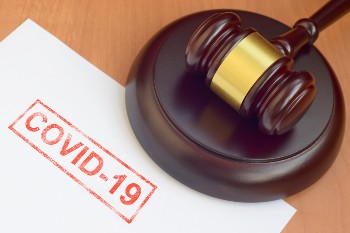
Nursing homes have taken the brunt of the damage when it comes to novel coronavirus deaths, and more than 50,000 residents in these long-term facilities have died across the country.
One of the first cases of COVID-19 in the United States, at least at the time, appeared in a nursing home in Kirkland, Washington, where 35 residents died from this virus alone in March 2020.
Sadly, most of these deaths are preventable with proper infection control, staff checks, and procedures. However, states are making the move to allow these facilities to escape accountability – meaning, even though they failed to use basic infection control procedures, they are not responsible for the deaths that occurred in their nursing home.
How Many States Are Shielding Nursing Homes from Civil Liability?
As of today, 26 states have already offered immunity to nursing homes from any civil liability in the deaths of their residents. Three states went as far as to grant criminal immunity too. Most of these state protections were part of governor-issued executive orders, but some state legislatures are now passing laws that will not hold these facilities accountable for deaths that happened on their watch – despite the fact they were preventable.
There are plenty of nursing homes throughout the state of Washington and the country that are not experiencing mass outbreaks and deaths, but that is because they have taken the time to implement basic infection control and sanitization. So, the fact that states are allowing reckless nursing homes to get away with their negligence makes it that much worse for families who have lost their loved ones.
The Burden of Proof Is on the Family
Right now, most state immunity acts require that loved ones prove that the nursing home was reckless or willfully disregarded a patient’s health and safety to show they were the cause of death. Unfortunately, with the novel coronavirus and nursing homes being allowed to use a pandemic as cover, it is harder to prove that a nursing home was purposefully negligent.
How Long Will the Pandemic Shield Nursing Homes?
Most immunity laws will last only for the duration of a governor’s public health emergency declaration, but with no one knowing the outcome of the COVID-19 pandemic as it stands right now, that could be years in some states. Furthermore, nursing homes may use this blanket cover as a way to cover other areas of neglect and malpractice when a patient dies from something other than the virus itself.
For years, states have moved to remove any immunity for substandard care in nursing homes and have even tightened regulations. However, these protections are now reversing years of work protecting the elderly and giving nursing homes fewer repercussions for poor care. Some advocates worry that these immunity decisions will extend long after the pandemic.
There is also potential federal legislation in the works that may remove any state or federal tort actions against nursing homes and long-term care facilities, including the bill that was introduced in May 2020 by Senator Phil Roe of Tennessee.
Nursing Home Advocates Claim That COVID-19 Was an Unforeseeable Catastrophe
Nursing home advocates state that they should receive immunity because COVID-19 was an unforeseeable national catastrophe. No one could have anticipated a pandemic of this magnitude that would sweep through nursing homes so swiftly. While it is true that no one could anticipate this, nursing homes are required to provide a higher standard of care, and they should already have in place infection protocols simply due to the immunocompromised nature of their residents. Even during flu season, nursing home staff should have procedures in place to isolate anyone with the seasonal flu and prevent others from contracting it. Therefore, while no one could have seen COVID-19 turn into a pandemic, that is no excuse for relaxed procedures and causing numerous infections and deaths in nursing homes across the country.
Most of these facilities that are experiencing a higher fatality rate also have previous citations on their record. Now, with government approval, they do not have to address those citations because they can hide under the blanket of pandemic immunity for their subpar care.
Holding Nursing Homes Accountable – You Still Have Options
While an emergency declaration is in place, nursing homes have immunity – but that is not 100%. If you suspect that your loved one’s death, while from coronavirus, was causally related to the willful or negligent acts of the nursing home’s staff, then you have the right to seek compensation despite these shield laws.
As stated before, most of these immunity instances have provisions that allow family members to seek compensation, but you must prove that the nursing home was actually negligent. With an attorney experienced in nursing home lawsuits, you can do just that. An attorney can lookup previous citations, complaints, and fines. They can investigate and look for a pattern showing clear negligence – pandemic or otherwise.
Do not assume that because there is an emergency declaration in place you cannot hold nursing homes accountable for their negligence. If you have lost a loved one, you still have rights, and your loved one deserved the level of care you would expect when paying for these services.
The team at Brett McCandlis Brown & Conner, PLLC, can assist you with your case. We have helped families just like yours fight back against negligent nursing homes and hold them accountable for their care practices. We may be able to secure compensation, including hospital and medical costs, lost wages, transfer fees, and reimbursement of nursing home payments. If your loved one died, you may receive compensation for funeral and burial costs as well.
To explore your options, and to see if you have a viable case, contact our attorneys today. You can schedule a free, no-obligation case evaluation with our team, or contact us online to get started.


